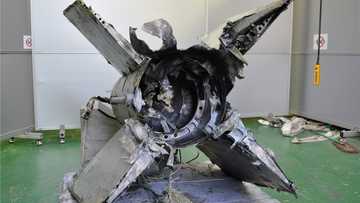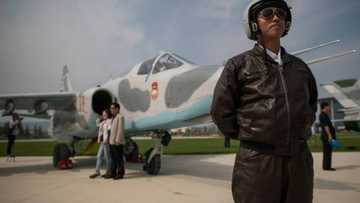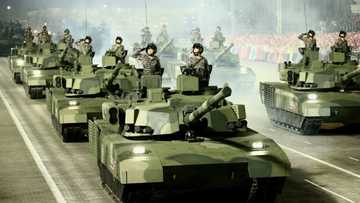North Korea fires ballistic missile, Seoul's military says
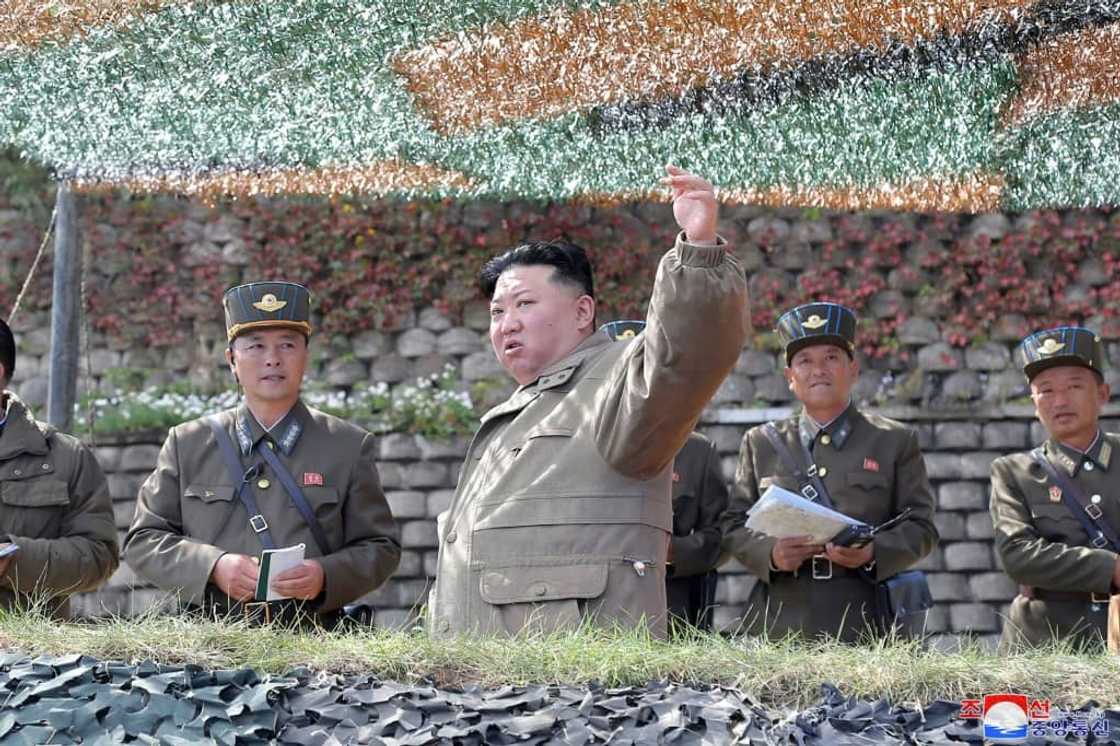
Source: AFP
PAY ATTENTION: Click “See First” under the “Following” tab to see Briefly News on your News Feed!
North Korea fired a ballistic missile Wednesday, Seoul's military said, the latest launch from Pyongyang following a record-breaking testing blitz earlier this month.
The launch comes as the United States counted votes in the midterm elections for the House and Senate, which Seoul's spy agency had previously warned would be a possible moment for Kim Jong Un to conduct a long-expected nuclear test.
Seoul's military said it had "detected a short-range ballistic missile launched by North Korea into the East Sea from Sukchon, South Pyongan Province, at around 15:31", referring to the body of water also known as the Sea of Japan.
"Strengthening surveillance and vigilance, the South Korean military maintains full preparedness while closely cooperating with the United States," it added.
Japan also confirmed the launch, with the government tweeting that Pyongyang "has launched a suspected ballistic missile".
Earlier this month, North Korea conducted a flurry of launches, including an intercontinental ballistic missile, which Seoul said appeared to have failed.
PAY ATTENTION: Never miss breaking news – join Briefly News' Telegram channel!
Pyongyang also fired a short-range ballistic missile that crossed the de facto maritime border and landed near the South's territorial waters for the first time since the end of the Korean War in 1953.
South Korean President Yoon Suk-yeol said at the time that it was "effectively a territorial invasion".
Both launches were part of a Wednesday November 2 barrage, when Pyongyang fired 23 missiles -- more than it launched during the whole of 2017, the year of "fire and fury" when Kim traded barbs with then-US president Donald Trump on Twitter and in state media.
"If you look at North Korea's behaviour since September 25, they have used a lot of money to consistently escalate tensions, so they need to maintain it," Park Won-gon, a professor at Seoul's Ewha University, told AFP.
North Korea fired a ballistic missile on September 25, which kicked off a spate of launches, including an intermediate-range ballistic missile which overflew Japan. Pyongyang later claimed these were "tactical nuclear drills".
"At the end, there will be a seventh nuclear test. Even though the joint drills are done for now, it's unlikely that North Korea will lower tensions."
- Drills, predictions -
November's flurry of launches came as hundreds of US and South Korean warplanes were participating in large-scale joint air drills, called Vigilant Storm, which Pyongyang has described as "aggressive and provocative".
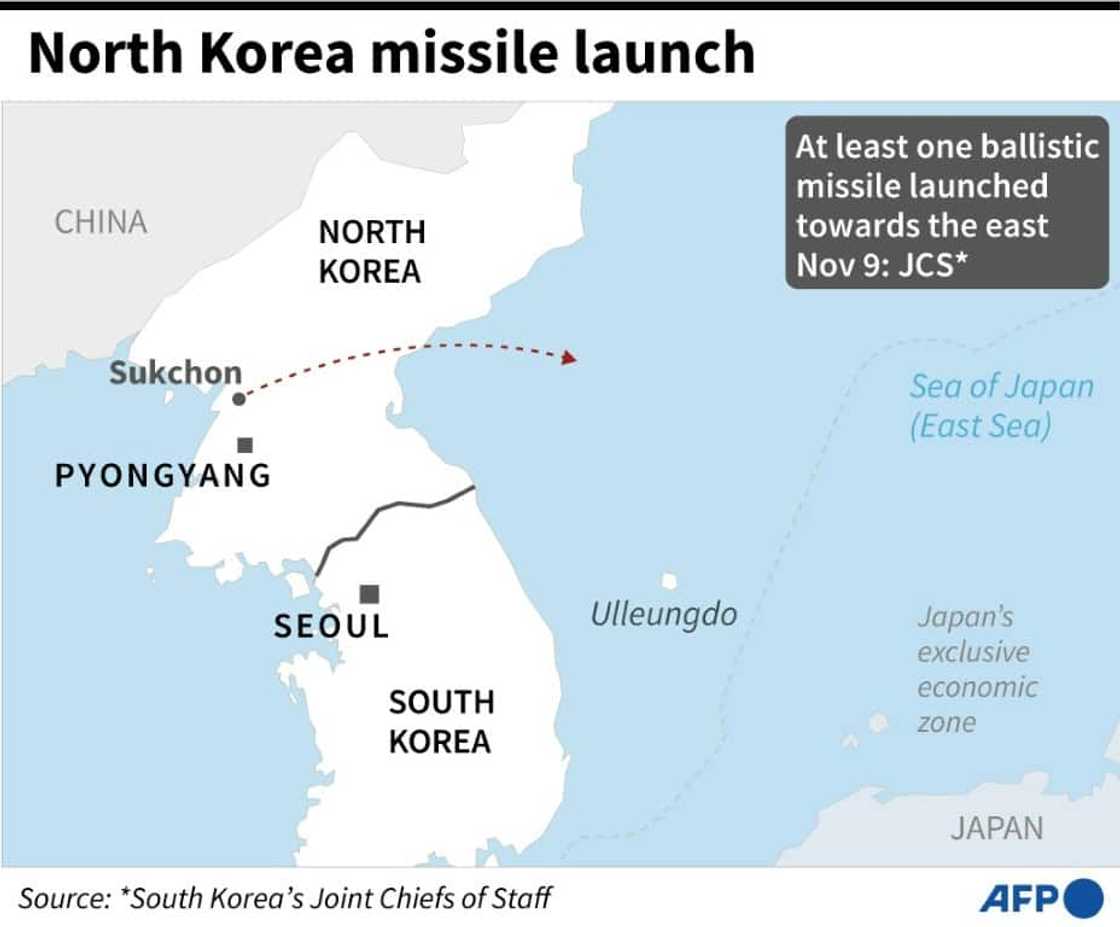
Source: AFP
Pyongyang ramped up missile launches in response to the drills. Such exercises have long provoked strong reactions from North Korea, which sees them as rehearsals for an invasion.
On Monday, the South's military kicked off its four-day computer-simulated Taegeuk drills.
"North Korea seems to have sufficiently achieved its political and diplomatic purposes by its massive missile launches earlier this month," North Korean studies scholar Ahn Chan-il told AFP.
"It seems to be in the process of testing where to deploy strategic military units to mount tactical nuclear weapons for its next nuclear test."
Seoul and Washington have been warning for months that the North is ready to conduct another nuclear test -- which would be the country's seventh -- at any time.
But analysts questioned the utility of trying to predict exactly when it was to come.
"I really don't get the fascination with trying to predict when #NorthKorea's next nuclear test will be," Korea specialist Jenny Town wrote on Twitter.
"How has this been going on for so many months now? The reality is #DPRK does need to do additional testing to achieve the goals that they set. Not just one, but a few," she wrote, referring to North Korea by its official name.
PAY ATTENTION: Сheck out news that is picked exactly for YOU ➡️ find the “Recommended for you” block on the home page and enjoy!
Source: AFP

